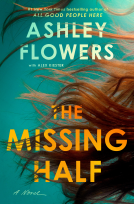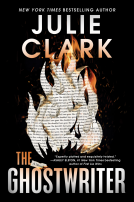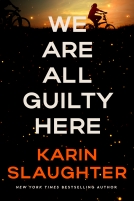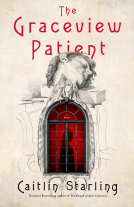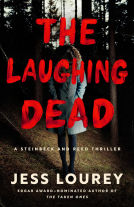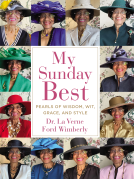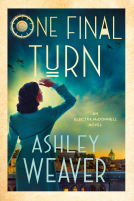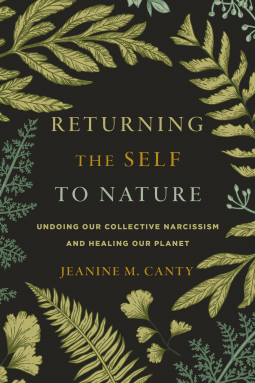
Returning the Self to Nature
Undoing Our Collective Narcissism and Healing Our Planet
by Jeanine M. Canty
This title was previously available on NetGalley and is now archived.
Send NetGalley books directly to your Kindle or Kindle app
1
To read on a Kindle or Kindle app, please add kindle@netgalley.com as an approved email address to receive files in your Amazon account. Click here for step-by-step instructions.
2
Also find your Kindle email address within your Amazon account, and enter it here.
Pub Date Nov 01 2022 | Archive Date Nov 01 2022
Shambhala Publications, Inc. | Shambhala
Talking about this book? Use #ReturningtheSelftoNature #NetGalley. More hashtag tips!
Description
Using the lens of ecopsychology, Returning the Self to Nature shows that the pervasive and extreme forms of narcissism we find in many modern societies are fundamentally the result of alienation from the natural world. But it doesn't have to be that way.
Returning the Self to Nature is written for the person who no longer wishes to function in a world that revolves around selfish, disconnected identity models and yearns to step into healthy relationships with one’s self, one’s community, and our planet.
Seeing the suffering of the planet and that of humans as inseparably linked—the ecological crisis as psychological crisis, and vice versa—opens the door to a mutuality of healing between people and nature. At the heart of both chronic and acute forms of narcissism is a socially constructed false self—an isolated, damaged ego in a delusional cycle of selfishness.
Through unflinching analysis and meditation practices that encourage visualizing and embodying the wild naturalness of being human, the reader will gain skills to begin experiencing a courageous, pluralistic, and ecological self. This book is an invitation to wake up from the dream of the false self and join the movement toward social and planetary healing.
Advance Praise
“We are in crisis as a world community. On top of political and financial instability, war, and a continued global pandemic, we are also having to contend with the instability of our natural world, the earth, and our climate. In Returning the Self to Nature, Jeanine Canty offers us a path back to nature itself, to start cutting through our individual and collective narcissism to embrace a profound shift to collective concern—which includes care for our planet. This book is such a generous offering, helping us to take compassion action on behalf of our communities and our precious planet.”—Lama Rod Owens, author of Love and Rage: The Path of Liberation through Anger
“Jeanine Canty has brought into focus a problem that affects us both interpersonally and environmentally. The importance of understanding how intertwined racism, sexism, narcissism, and world devastation are is made clear in this wonderful book. The emotional and personal reasons behind why our world is suffering so much are exposed here. What a joy to see the depth of thought, research, and vulnerability that this book offers us, and for all these reasons it is a ‘must read’ in these challenging times.”—Lama Tsultrim Allione, author of Women of Wisdom and Feeding Your Demons
“Today we bear witness to the catastrophic effects of individual and collective narcissism: painful divides between classes, races, and political tribes, and an urgent climate crisis. Although these seem like disparate issues, according to Jeanine Canty, the invisible thread that ties them together is our worship of the heroic ego and our efforts to fill its bottomless needs. This overarching insight is a significant contribution to the critical conversations of our time.”—Connie Zweig, author of The Inner Work of Age and Meeting the Shadow of Spirituality
“Today many different challenges confront us, but there is a basic dysfunctional pattern underlying and connecting most of them. Returning the Self to Nature weaves together many of the most important strands: personal and collective narcissism, alienation from the earth, consumerism, racism, and other forms of social injustice, corporate globalization. If you want to understand the root of these problems and how to address them, this is a good place to start.”—David R. Loy, author of Ecodharma: Buddhist Teachings for the Ecological Crisis
“Jeanine Canty offers a deep appraisal of how our collective narcissism fuels violent exploitation and our escalating ecological crisis. She also helps us navigate these painful realities by guiding readers into a dynamic healing space, offering practices and perspectives that can restore socially just, harmonious relationships with each other and all beings of our Mother Earth. It is an essential read for taking the necessary steps toward a life sustaining world.”—Leslie Davenport, author of Emotional Resiliency in the Era of Climate Change
“What would you do if someone told you that they held a key to understanding the degradation of our primordial parent, Mother Earth? Would you listen? What if they told you that these wounds to Earth are inflicted because we wound each other? Could you bear it? What if they showed you a way toward clarity and loving selflessness? Would you be open? In Returning the Self to Nature, Jeanine M. Canty shepherds us through the emotionally painful reality of our collective narcissism to remind us that we are much more expansive than our wounds lead us to believe.”—Pamela Ayo Yetunde, co-editor of Black and Buddhist and author of Object Relations, Buddhism, and Relationality in Womanist Practical Theology
Available Editions
| EDITION | Other Format |
| ISBN | 9781611809749 |
| PRICE | $18.95 (USD) |
| PAGES | 192 |
Featured Reviews
I really liked this book. Unfortunately, the world struggles with narcissism. I was in a bad relationship with someone who was narcissistic. This really helped to calm my soul. Strongly recommend.
 Bookseller 689249
Bookseller 689249
I was really surprised when reading this book - I was expecting a book on tips on how to connect with nature, but found myself deeply engaged in a thoroughly-researched book on eco psychology. There are so many parallels to our current climate crisis that link to our society’s narcissistic behaviours that I had never thought about until reading this book; until we can learn to think and act collectively, it will be nature that suffers from our selfishness.
One of my favourite parts about this book are the reflection and meditation practices at the end of each chapter. Books like this can be overwhelming, when faced with the truths and culture shifts required to make significant changes. Having built-in strategies for reconnnection with oneself while learning about these large topics make it easier and motivating to read onto the next.
 Librarian 37033
Librarian 37033
Jeanine M. Canty is an ecopsychologist. She studies the narcissism that is an epidemic in modern mostly Western culture. Western society focuses more on the importance of the self at the expense of the group while Eastern cultures focus more on group health and what is best for the group in general. Narcissism has created a bunch of people acting like rude toddlers in our everyday lives. Jeanine presents ways to balance ourselves using nature and meditation.
However the narcissist individual must see they are part of the problem and seek to change. This can be difficult. Let us hope that getting back to nature and seeking a better balance can help our society get back to some semblance of normalcy soon.
Read this book and get your family back in nature to recharge your batteries and refocus your life.
Readers who liked this book also liked:
Karin Slaughter
General Fiction (Adult), Mystery & Thrillers, Women's Fiction
